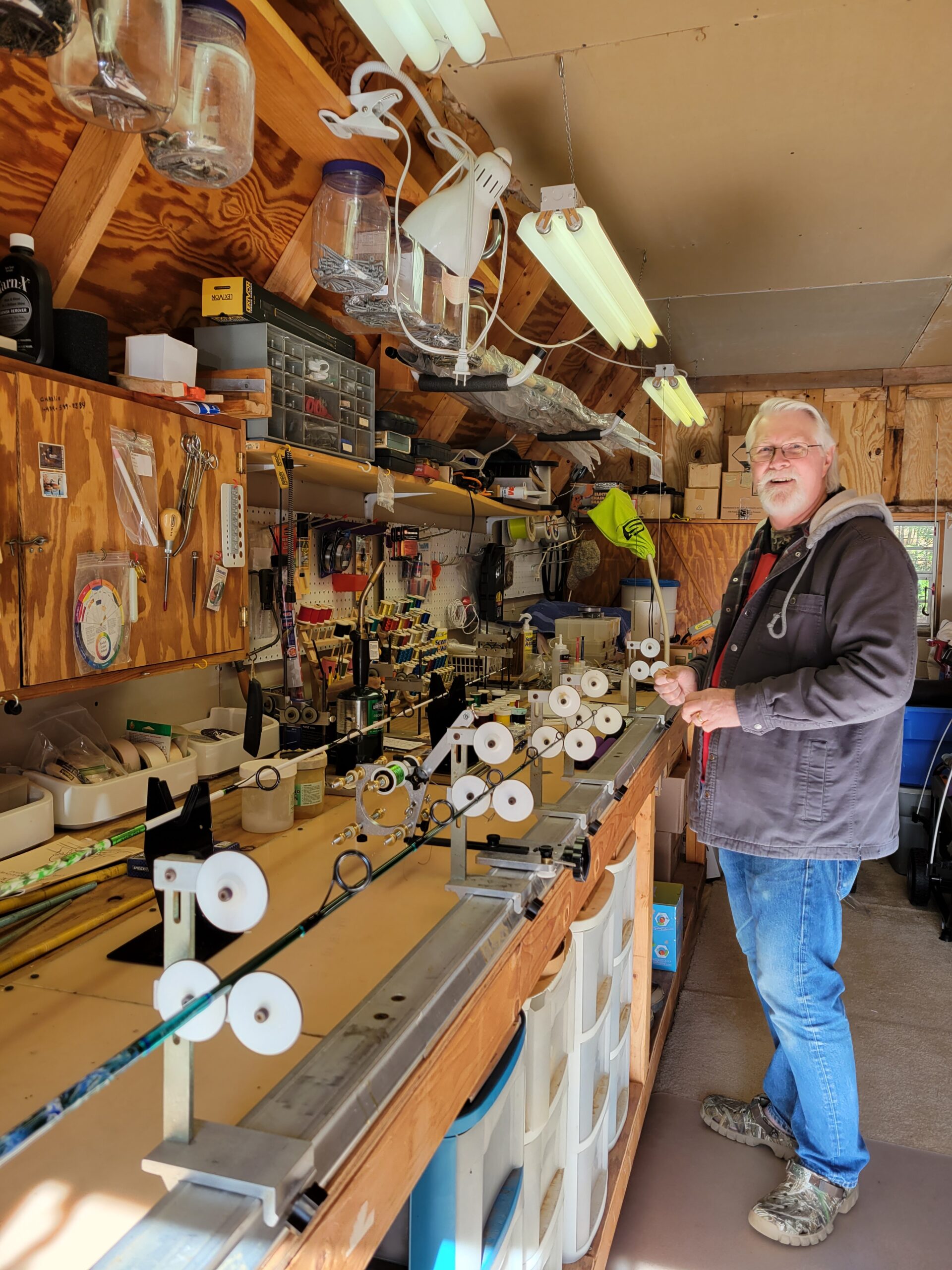Lake Anna, VA – With an arctic chill expected today and tomorrow, Rappahannock Electric Cooperative (REC) is doubling down on its commitment to grid reliability. REC is actively monitoring energy demand and supply to maintain reliable service for its 180,000 members across 22 Virginia counties. As a participant in the PJM regional energy grid, REC recognizes the challenges ahead, particularly with the potential for a record-setting winter peak in electricity demand forecasted between January 20–22.
What This Means for Members:
- Higher Energy Bills
Heating systems will need to work overtime to maintain comfort, resulting in increased energy consumption and higher costs. - Possible Load Reductions
If demand exceeds supply, utilities may voluntarily implement energy reductions in specific areas to protect the grid’s stability. - Risk of Controlled Outages
To safeguard the grid during prolonged cold spells, short-term, controlled outages may become necessary. Be prepared with a backup heating source or safety plan to keep your family warm.
“Extreme weather and the possibility of a record-setting winter peak highlight the growing challenges of maintaining grid reliability as electricity demand continues to rise,” said John Hewa, president and CEO of REC.
REC’s engineering and power supply teams are closely tracking local energy demand and transmission capacities within the PJM system. They stand ready to respond if PJM requests voluntary load curtailment.
“Our team is prepared to handle any challenges brought on by the extreme cold and increased demand,” said Chris Stoia, REC’s vice president of engineering and power supply.
The Importance of Preparedness
A 2024 report from the North American Electric Reliability Corporation (NERC) underscores the risks of constrained electricity supplies during cold spells. Increased demand for electric heating systems can push grids to their limits. In these scenarios, rolling blackouts—though brief—help prevent total grid failure.
Tips to Save Energy and Lower Costs:
- Adjust Your Thermostat
Keep your thermostat at 68°F during the winter and lower it a few more degrees overnight or when away to conserve energy. - Limit Space Heater Use
Space heaters are energy-intensive. Use them sparingly, only in occupied spaces, and turn them off when leaving the room. - Shift Appliance Use
Avoid running high-energy appliances (like washers, dryers, and dishwashers) during peak hours—early morning and evening. Refrain from using hot tubs or large hot water heaters during this time. - Unplug Electronics
Electronics like phone chargers and gaming systems consume energy even when not in use. Unplug non-essential devices to cut down on phantom energy use.
Stay Connected During Outages
REC emphasizes the importance of being prepared for outages. Visit myrec.coop/stormprep for tips on creating an emergency kit to keep your family safe and comfortable. Stay informed through REC’s website, social media channels, or member alert systems.

Hi! I’m Jennifer Bailey and I partner with entrepreneurs who have massive ideas that could change the world. Most marketing is meaningless. Filled with empty promises, its only job is to bring in new traffic, new leads, and new customers. But I’ve drawn a line in the sand, and I’ve learned that marketing can do so much more than reach business goals and build profit. My methods give businesses the fire and soul they need to reach the right people, set the groundwork for sustainable relationships, and offer true value to the people on both the giving and receiving ends of marketing.
Subscribe for Updates
Sponsors
latest articles
LASER Teams Excel at State Championship

Louisa Knights Checkmate Their Way to Success at State Tournament

Shoreline Planting at Lake Anna: a Natural Solution to Harmful Algae Blooms

Date Set for 2026 Lake Anna Home Tour

Tight Lines Built to Last: the Art of the Perfect Catch

Local Civic Association’s Role in Development, Preservation

Lake Anna, VA – With an arctic chill expected today and tomorrow, Rappahannock Electric Cooperative (REC) is doubling down on its commitment to grid reliability. REC is actively monitoring energy demand and supply to maintain reliable service for its 180,000 members across 22 Virginia counties. As a participant in the PJM regional energy grid, REC recognizes the challenges ahead, particularly with the potential for a record-setting winter peak in electricity demand forecasted between January 20–22.
What This Means for Members:
- Higher Energy Bills
Heating systems will need to work overtime to maintain comfort, resulting in increased energy consumption and higher costs. - Possible Load Reductions
If demand exceeds supply, utilities may voluntarily implement energy reductions in specific areas to protect the grid’s stability. - Risk of Controlled Outages
To safeguard the grid during prolonged cold spells, short-term, controlled outages may become necessary. Be prepared with a backup heating source or safety plan to keep your family warm.
“Extreme weather and the possibility of a record-setting winter peak highlight the growing challenges of maintaining grid reliability as electricity demand continues to rise,” said John Hewa, president and CEO of REC.
REC’s engineering and power supply teams are closely tracking local energy demand and transmission capacities within the PJM system. They stand ready to respond if PJM requests voluntary load curtailment.
“Our team is prepared to handle any challenges brought on by the extreme cold and increased demand,” said Chris Stoia, REC’s vice president of engineering and power supply.
The Importance of Preparedness
A 2024 report from the North American Electric Reliability Corporation (NERC) underscores the risks of constrained electricity supplies during cold spells. Increased demand for electric heating systems can push grids to their limits. In these scenarios, rolling blackouts—though brief—help prevent total grid failure.
Tips to Save Energy and Lower Costs:
- Adjust Your Thermostat
Keep your thermostat at 68°F during the winter and lower it a few more degrees overnight or when away to conserve energy. - Limit Space Heater Use
Space heaters are energy-intensive. Use them sparingly, only in occupied spaces, and turn them off when leaving the room. - Shift Appliance Use
Avoid running high-energy appliances (like washers, dryers, and dishwashers) during peak hours—early morning and evening. Refrain from using hot tubs or large hot water heaters during this time. - Unplug Electronics
Electronics like phone chargers and gaming systems consume energy even when not in use. Unplug non-essential devices to cut down on phantom energy use.
Stay Connected During Outages
REC emphasizes the importance of being prepared for outages. Visit myrec.coop/stormprep for tips on creating an emergency kit to keep your family safe and comfortable. Stay informed through REC’s website, social media channels, or member alert systems.

Hi! I’m Jennifer Bailey and I partner with entrepreneurs who have massive ideas that could change the world. Most marketing is meaningless. Filled with empty promises, its only job is to bring in new traffic, new leads, and new customers. But I’ve drawn a line in the sand, and I’ve learned that marketing can do so much more than reach business goals and build profit. My methods give businesses the fire and soul they need to reach the right people, set the groundwork for sustainable relationships, and offer true value to the people on both the giving and receiving ends of marketing.
Subscribe for Updates
Sponsors
latest articles
LASER Teams Excel at State Championship

Louisa Knights Checkmate Their Way to Success at State Tournament

Shoreline Planting at Lake Anna: a Natural Solution to Harmful Algae Blooms

Date Set for 2026 Lake Anna Home Tour

Tight Lines Built to Last: the Art of the Perfect Catch

Local Civic Association’s Role in Development, Preservation


Louisa Knights Checkmate Their Way to Success at State Tournament
Article By Jennifer Christian

Can Lake Anna Get Urgent Care? Why Medical Providers Say ‘No’
Article By Jen Bailey





